Since Hawaii County has not yet regulated hosted short term vacation rentals, Iʻm getting more questions about properties with an “ohana” or “guest house” that could potentially be rented out short term or long term. Under the Hawaii County Code, ohana and guest house have distinct definitions. Here are some basics on the definitions, and the rules regarding how to obtain a permit to build an ohana unit.
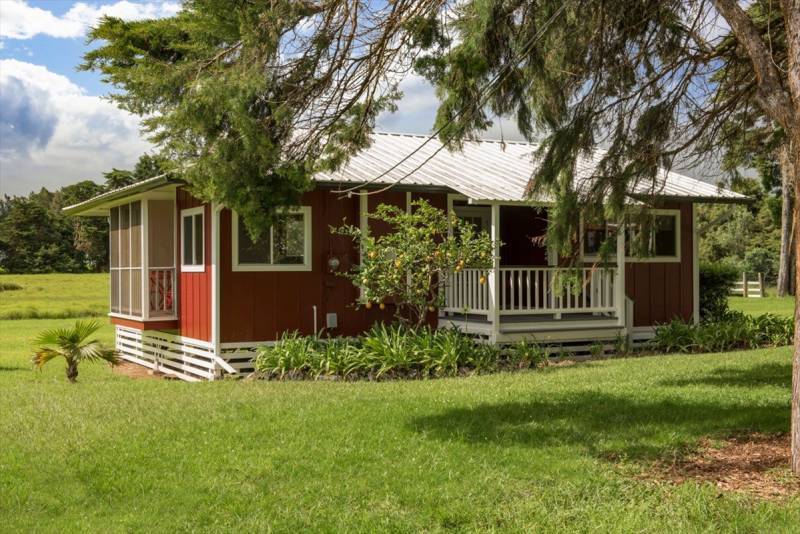
This second dwelling or ohana dwelling unit in Waimea was built in the same style as the main home (MLS 622934)
Definition: Is it an Ohana or a Guest House?
The word ʻohana means “family” or “related” in the Hawaiian language, so the usage has the same sensibility as what might be called a “mother-in-law suite” elsewhere. In other words, we are talking about a separate dwelling, or a portion of a home with a separate entrance, ostensibly built for a member of the homeownerʻs extended family.
As listing agents, we often use the terms “ohana” and “guest house” as if they were interchangeable. However, Chapter 25 (Zoning) of the Hawaiʻi County code contains distinct definitions when referring to an accessory dwelling unit. In simplest terms, it comes down to whether or not the secondary structure can legally have a kitchen.
“Guest house” means an accessory building used as sleeping quarters for guests of the occupants of the main dwelling and having no cooking facilities.
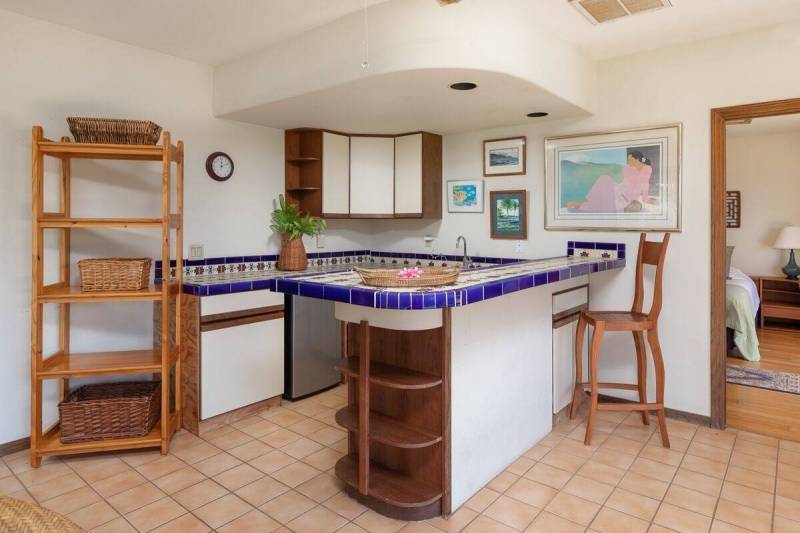
Most gated community CC&Rs allow guest house but not ohana…meaning you can have a wet bar, but not a full kitchen, like this guest house of a home for sale at Puakea Bay Ranch (MLS 622473)
“Ohana dwelling” means a second dwelling unit permitted to be built as a separate or an attached unit on a building site. The definition makes clear that a guest house or a farm dwelling has different procedures for permitting, according to the County Code.
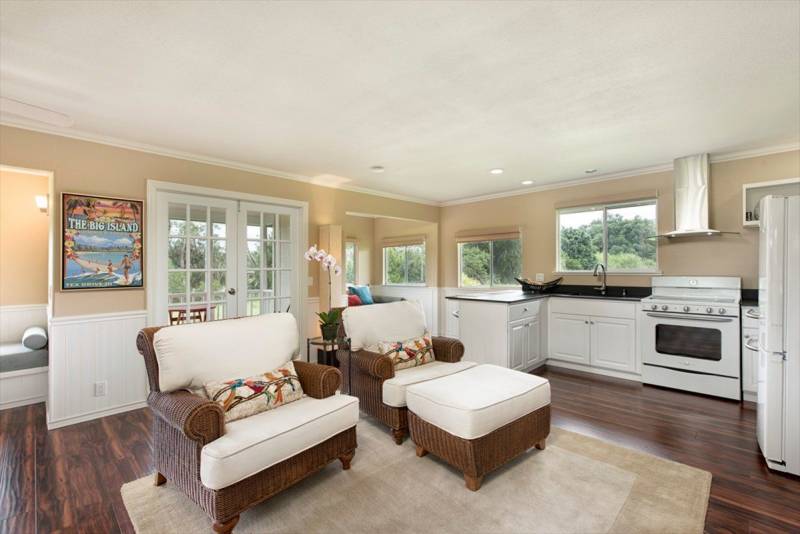
Interior of a legal ohana dwelling, showing the full kitchen. This belongs to the Waimea property shown above (MLS 622934)
While the statute says an ohana dwelling can be built on a lot zoned Residential (RS), Residential/Agricultural (RA) or Agricultural (A), it takes care to specify that if the underlying state land use designation is Agricultural, rather than Urban or Rural, then a second dwelling unit must comply with a different section of the code pertaining to additional farm dwellings.
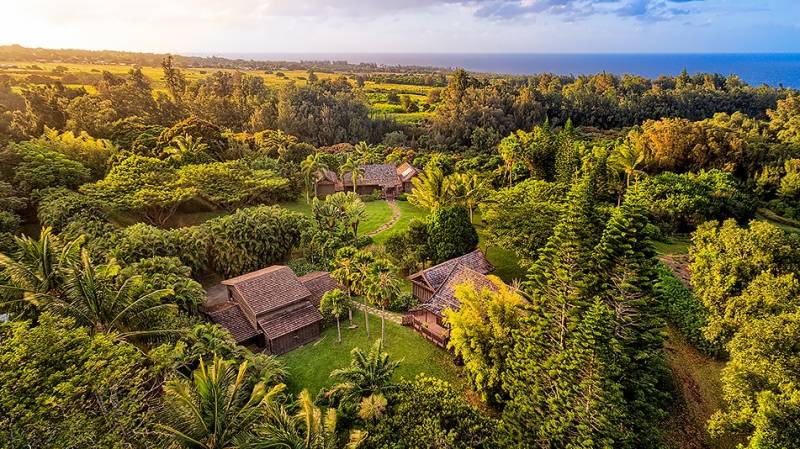
One of the Hawi properties for sale featured in my Family Compound post, has a second farm dwelling similar in size to the primary home (MLS 624979)
Can I Add an Ohana or Guest House to an Existing Home?
Wondering if you can add an ohana or guest house to a property you are considering? The short answer is “maybe.” In general, adding a guest house is easier than adding an ohana with kitchen facilities.
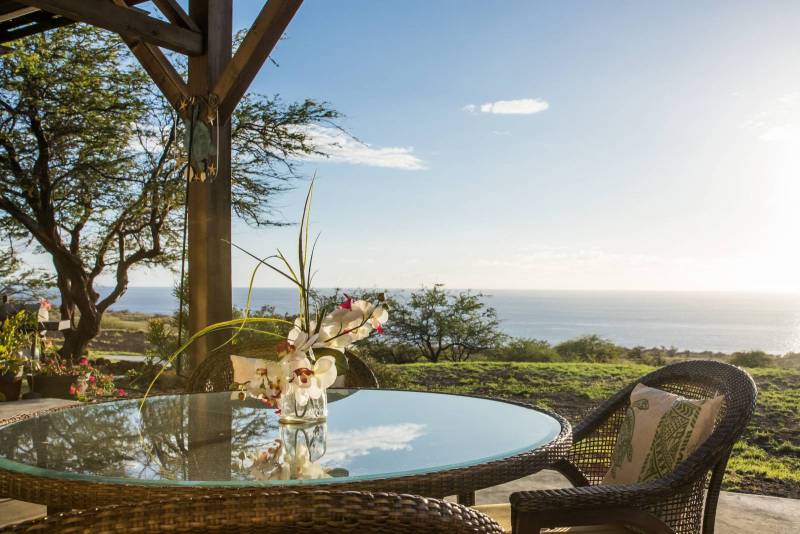
If you want this view, but want to add to the existing two bedroom home, there is plenty of room for a guest house (MLS 622675)
You cannot have more than one ohana dwelling unit on the same lot, nor can you add one if there is an existing multi-family dwelling or a single-family dwelling with transient accommodations. So if you bought a property that already had obtained a non-conforming use certificate to do short term vacation rentals legally, you cannot expand with an ohana dwelling.
If you have an existing guest house, you might be able to convert to an ohana with full kitchen, assuming you can meet all other requirements. Those include a sewage disposal system meeting State Department of Health standards, and a potable water supply (separate water meter, unless you qualify for catchment).
Size of the lot is a consideration. While you will find some existing properties with two legal homes on a lot as small as 10,000 sq ft, more recent changes to the rules for wastewater require you to have a minimum of 10,000 sq ft per septic system.
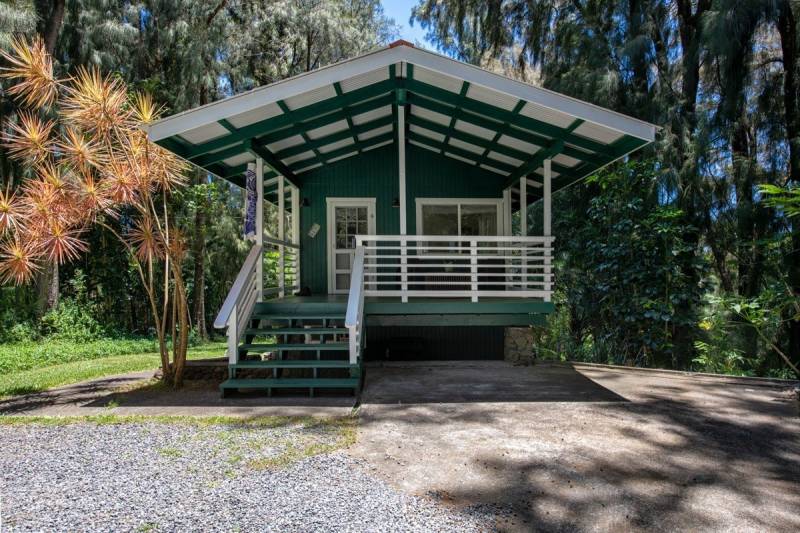
Secluded legal cottage on a Hawi property with two homes on a little over two acres (MLS 629657)
And a final note — if you see a property for sale with a small existing home on a large lot, and wonder if the rules allow you to treat that as an ohana dwelling and build a new “first” single-family dwelling, the answer is yes. Assuming you can meet all other requirements, you could ask for the planning director to designate the existing structure as the ohana and pull a permit for a new home.
Please remember that nothing requiring government approvals comes with a guarantee of success, and the county code changes over time. Be sure to check directly for the most current information or hire a planning consultant to assist. The safest bet if you want a separate legal guest unit, is to buy a property that already has one!

david sun
June 12, 2020
question: I have a 1800 sq ft house on the 8900 sq ft lot, wants to build a guest house, which department I should check into.